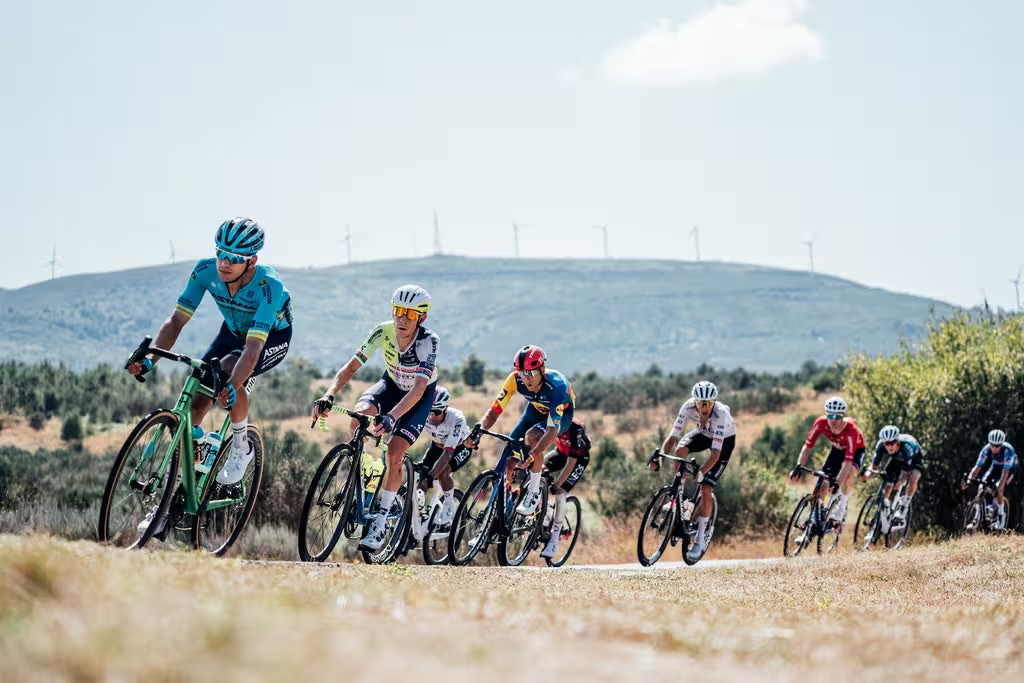Pablo Castrillo’s win on stage 12 of the Vuelta a España should be savoured because it’s really important. Important to him, at 23 years old and at the beginning of what many believe will be a successful career; important to his team, Kern Pharma, in just their fifth year of existence and securing only their ninth victory and first Grand Tour win; and important to Spain, the home nation belatedly up and running with a stage win after the halfway mark. But, above all, Castrillo’s win is important – vitally important – for the sport of cycling because these David vs Goliath triumphs, the little teams versus the superteams, the small budgets versus the megabucks, are going to become increasingly uncommon. In fact, they may never happen again.
Since the start of this season, the UCI, cycling’s world governing body, has introduced new rules regarding which teams are eligible to receive one of the four wildcard places at the three Grand Tours. To be selected in 2024, the two best-ranked second-tier teams (Lotto-Dstny and Israel-Premier Tech) were automatically invited, and the race organisers could also choose two ProTour teams in the top 50 of the team rankings. In 2025, the two remaining slots will go to teams in the top 40, and from 2026 onwards it’ll be restricted to teams in the top 30 of the rankings.
There are reasons to be in favour of what is mostly seen as a sensible proposal, chief among them ensuring that the best teams and riders are at the biggest races. But there is a downside. As things stand, Kern Pharma, as the 31st-ranked team, would not be permitted to ride their home Grand Tour in 2026 – despite young Castrillo’s nail-biting win at Manzaneda; Euskaltel-Euskadi, a team with such deep cycling heritage who almost won stage three’s sprint through Jon Aberasturi, are 49th in the rankings and will miss out on selection next year; Corratec-Vini Fantini, the team who came within metres of winning two stages of the 2023 Giro d’Italia, are ranked 50th and won’t receive an invite to the Corsa Rosa; and VF Group-Bardiani CSF-Faizane, mainstays of the Giro, are also not guaranteed a spot, potentially leaving the Italian Grand Tour without any Italian teams.
It’s a similar story in Spain. Despite boasting four ProTeam outfits, only two can receive the remaining wildcard places, and this year Caja Rural-Seguros RGA and Burgos-BH are watching the Vuelta at home, even though they’ve won 50 races between them…

